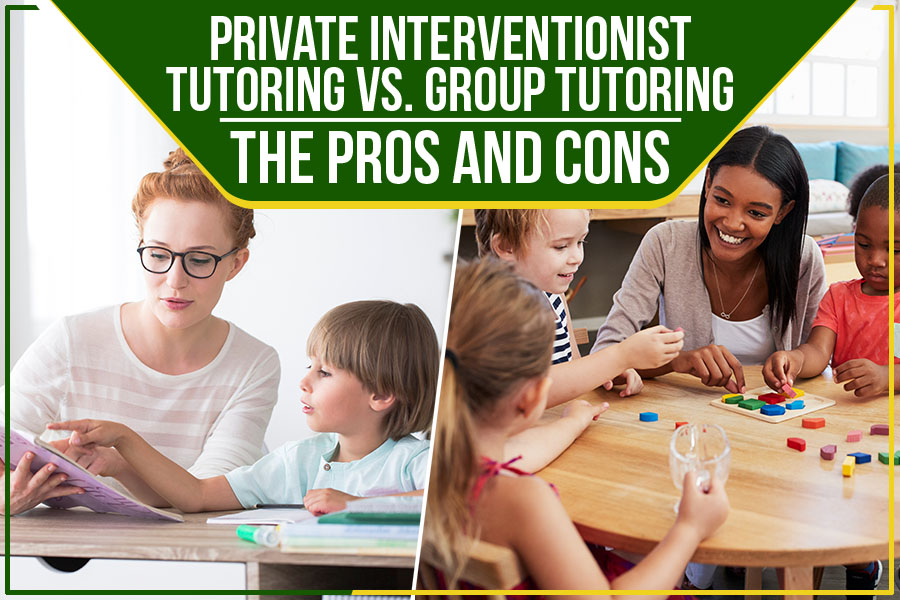Private Interventionist Tutoring Vs. Group Tutoring: The Pros And Cons

Some people say that all kids are the same, while others think that each child is unique. This is a never-ending debate, so we will not get into it! However, it is a fact that some children perform better in group tutoring, while others learn more through interventionist tutoring.
In this blog post, we discuss the pros and cons of private interventionist tutoring and group tutoring so you can decide which option is better for your little one.
Also, considering the ongoing pandemic, it may be wiser to opt for online tutoring, whether group or interventionist.
Without further ado, let’s get down to some business. Make sure to remain open-minded and unbiased while you read the post so that you can make the most informed decision. Below is a list of the pros and cons of private interventionist tutoring and group tutoring.
Private Interventionist Tutoring
Pros
- Private interventionist tutoring is one-on-one tutoring, which means your child will get the undivided attention of the tutor.
- The curriculum and lesson plan are in accordance with your child's level, progress, and past education.
- The private tutor can gauge your child's responses to different teaching methods and employ VAC (Visual, Auditory & Kinetic) learning styles to engage other senses, depending on which helps your child retain the most knowledge.
- Private tutoring results in a stronger teacher-student bond.
Cons
- In most cases, private tutoring is much more expensive than group tutoring.
- It is always a safety risk to leave your child with a stranger.
- Private tutoring can be stagnating at a personal level. This is because your child's interactions with others will be very limited as they will be spending a good chunk of their day in class, which may affect their personality.
- Your child can quickly get bored and start feeling obligated and forced to study, which will affect their retention.
Group Tutoring
Pros
- Your child’s social skills will likely improve.
- They are more likely to make friends.
- Group discussions lead to a better understanding of the subject matter as one child may look at a topic from a unique angle which the others hadn’t thought of; sharing their perspectives with the other class members will expand everyone’s understanding.
- Group classes encourage healthy competition, which means your child might participate more in a group setting and strive to perform better than the rest.
- In group tutoring, the lessons are more neutral in order to cater to the needs of all the children. This means your child will be able to revisit some concepts they previously learned, which will improve their understanding.
Cons
- The understanding level of each child may vary, making it harder for the teacher to give every child the same amount of attention.
- Your child may feel shy to ask questions, thus the teacher will assume they understand, which may hinder their learning.
- Group classes can become distracting, especially since most children already have a short attention span.
- Group learning may become boring and a waste of time for your child if most of the other children are not at the same level as them.
Private interventionist tutoring and group tutoring both have their advantages and disadvantages. We hope this blog post has helped you gain a better perspective of each model. At the end of the day, you should make a decision based on your child's unique personality and needs.
At Mrs. Myers' Reading Room, we offer both interventionist tutoring programs and group classes in Southeast Wisconsin. Contact us if you would like to gain a better understanding of which type of tutoring is best suited to your child.




